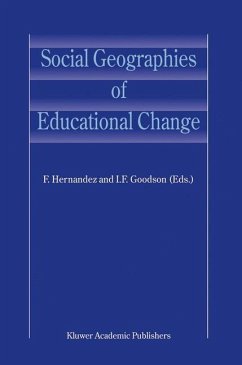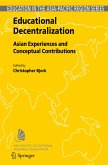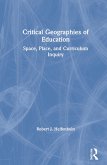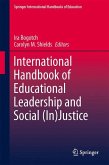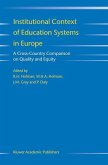Social Geographies, as spatial location, is a factor relevant to understanding the variety of people's interpretations and appropriations of educational innovations and changes. Their location in the social space also influences their response to change. In the field of educational change, social space means for example, skin colour, gender distribution of teachers in one school, children's self-cultural representations or parents' religious attitudes.
By using the notion of Social Geographies in the context of educational change, the authors address the following questions:
How initiatives in a classroom or department are influenced by the surrounding context of the school, the district or the nation;
How innovation spreads or diffuses from one school to another;
How and whether reforms can be scaled up from a few schools to a whole system;
How seemingly standardised reforms affect schools differently depending on where they are located;
How schools influence one another;
How the identities of, and interrelationships among, schools are affected by technology, principles of market competition and choice, and other initiatives.
This volume is relevant to educationalists, policy-makers, teachers, and students interested in a more complex approach to understand and intervene in educational change processes.
By using the notion of Social Geographies in the context of educational change, the authors address the following questions:
How initiatives in a classroom or department are influenced by the surrounding context of the school, the district or the nation;
How innovation spreads or diffuses from one school to another;
How and whether reforms can be scaled up from a few schools to a whole system;
How seemingly standardised reforms affect schools differently depending on where they are located;
How schools influence one another;
How the identities of, and interrelationships among, schools are affected by technology, principles of market competition and choice, and other initiatives.
This volume is relevant to educationalists, policy-makers, teachers, and students interested in a more complex approach to understand and intervene in educational change processes.

